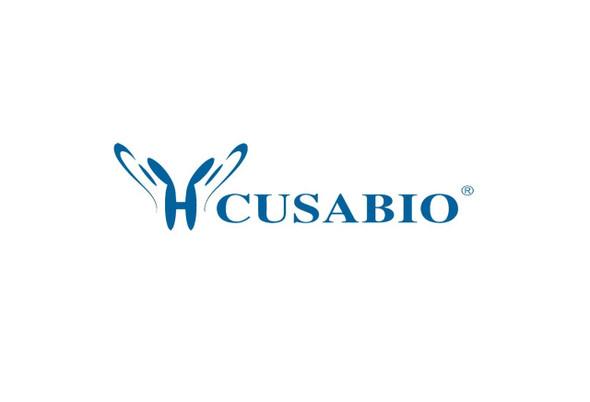Cusabio Rattus norvegicus Recombinants
Recombinant Rat Tyrosine-protein kinase Mer (Mertk), partial | CSB-MP013706RA
- SKU:
- CSB-MP013706RA
- Availability:
- 18 - 28 Working Days
Description
Recombinant Rat Tyrosine-protein kinase Mer (Mertk), partial | CSB-MP013706RA | Cusabio
Alternative Name(s): Proto-oncogene c-Mer (Receptor tyrosine kinase MerTK)
Gene Names: Mertk
Research Areas: Neuroscience
Organism: Rattus norvegicus (Rat)
AA Sequence: GGTAEKEEEIKPDQPFSGPLPGSLPADHRPFFAPHSSGDQLSPSQTGRSHPAHTATPQMTSAASNLLPPVAFKNTIGRIVLSEHKSVKFNCSINIPNVYQETAGISWWKDGKELLGAHHSITQFYPDEEGVSIIALFSITSVQRSDNGSYICKMKVNDREVVSDPIYVEVQGLPYFTKQPESVNVTRNTAFNLTCQAVGPPEPVNIFWVQNSSRVNENPERSPSVLTVAGLTETAVFSCEAHNDKGLTVSKGVQINIKVIPSPPTEVHILNSTAHSILVSWVPGFDGYSPLQNCSIQVKEADQLSNGSVMVFNTSASPHLYEVQQLQALANYSVTVSCRNEIGWSAVSPWILASTTEGAPAVAPLNITVFLNESSNNLEIRWTKPPIKRQDGELVGYRISHVWESAGTSKELSEEVSQNGSWAQVPVQMHNATCTVRIAVITKGGIGPFSEPVDVAIPEHSRVDYAPSSTPAPGNTESM
Source: Mammalian cell
Tag Info: N-terminal 6xHis-tagged
Expression Region: 19-497aa
Sequence Info: Partial
MW: 55.5
Purity: Greater than 90% as determined by SDS-PAGE.
Relevance: Receptor tyrosine kinase that transduces signals from the extracellular matrix into the cytoplasm by binding to several ligands including LGALS3, TUB, TULP1 or GAS6. Regulates many physiological processes including cell survival, migration, differentiation, and phagocytosis of apoptotic cells. Ligand binding at the cell surface induces autophosphorylation of MERTK on its intracellular domain that provides docking sites for downstream signaling molecules. Following activation by ligand, interacts with GRB2 or PLCG2 and induces phosphorylation of MAPK1, MAPK2, FAK/PTK2 or RAC1. MERTK signaling plays a role in various processes such as macrophage clearance of apoptotic cells, platelet aggregation, cytoskeleton reorganization and engulfment. Functions in the retinal pigment epithelium as a regulator of rod outer segments fragments phagocytosis. Plays also an important role in inhibition of Toll-like receptors-mediated innate immune response by activating STAT1, which selectively induces production of suppressors of cytokine signaling SOCS1 and SOCS3.
Reference: "Mertk triggers uptake of photoreceptor outer segments during phagocytosis by cultured retinal pigment epithelial cells." Feng W., Yasumura D., Matthes M.T., LaVail M.M., Vollrath D. J. Biol. Chem. 277:17016-17022(2002)
Storage: The shelf life is related to many factors, storage state, buffer ingredients, storage temperature and the stability of the protein itself. Generally, the shelf life of liquid form is 6 months at -20?/-80?. The shelf life of lyophilized form is 12 months at -20?/-80?.
Notes: Repeated freezing and thawing is not recommended. Store working aliquots at 4? for up to one week.
Function:
Involvement in disease:
Subcellular Location:
Protein Families:
Tissue Specificity:
Paythway:
Form: Liquid or Lyophilized powder
Buffer: If the delivery form is liquid, the default storage buffer is Tris/PBS-based buffer, 5%-50% glycerol. If the delivery form is lyophilized powder, the buffer before lyophilization is Tris/PBS-based buffer, 6% Trehalose, pH 8.0.
Reconstitution: We recommend that this vial be briefly centrifuged prior to opening to bring the contents to the bottom. Please reconstitute protein in deionized sterile water to a concentration of 0.1-1.0 mg/mL.We recommend to add 5-50% of glycerol (final concentration) and aliquot for long-term storage at -20?/-80?. Our default final concentration of glycerol is 50%. Customers could use it as reference.
Uniprot ID: P57097
HGNC Database Link: N/A
UniGene Database Link: N/A
KEGG Database Link: N/A
STRING Database Link: N/A
OMIM Database Link: N/A









